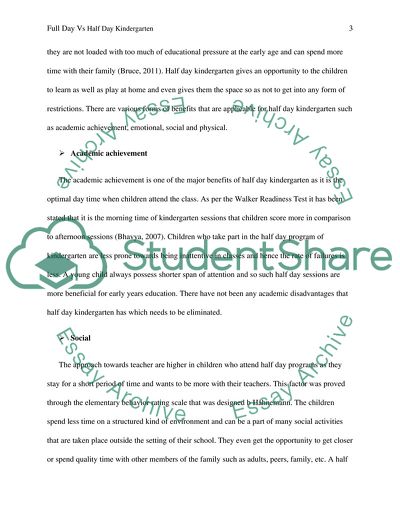Cite this document
(Full Day vs Half Day Kindergarten Essay Example | Topics and Well Written Essays - 2500 words, n.d.)
Full Day vs Half Day Kindergarten Essay Example | Topics and Well Written Essays - 2500 words. https://studentshare.org/education/1830704-full-day-vs-half-day-kindergarten
Full Day vs Half Day Kindergarten Essay Example | Topics and Well Written Essays - 2500 words. https://studentshare.org/education/1830704-full-day-vs-half-day-kindergarten
(Full Day Vs Half Day Kindergarten Essay Example | Topics and Well Written Essays - 2500 Words)
Full Day Vs Half Day Kindergarten Essay Example | Topics and Well Written Essays - 2500 Words. https://studentshare.org/education/1830704-full-day-vs-half-day-kindergarten.
Full Day Vs Half Day Kindergarten Essay Example | Topics and Well Written Essays - 2500 Words. https://studentshare.org/education/1830704-full-day-vs-half-day-kindergarten.
“Full Day Vs Half Day Kindergarten Essay Example | Topics and Well Written Essays - 2500 Words”. https://studentshare.org/education/1830704-full-day-vs-half-day-kindergarten.


